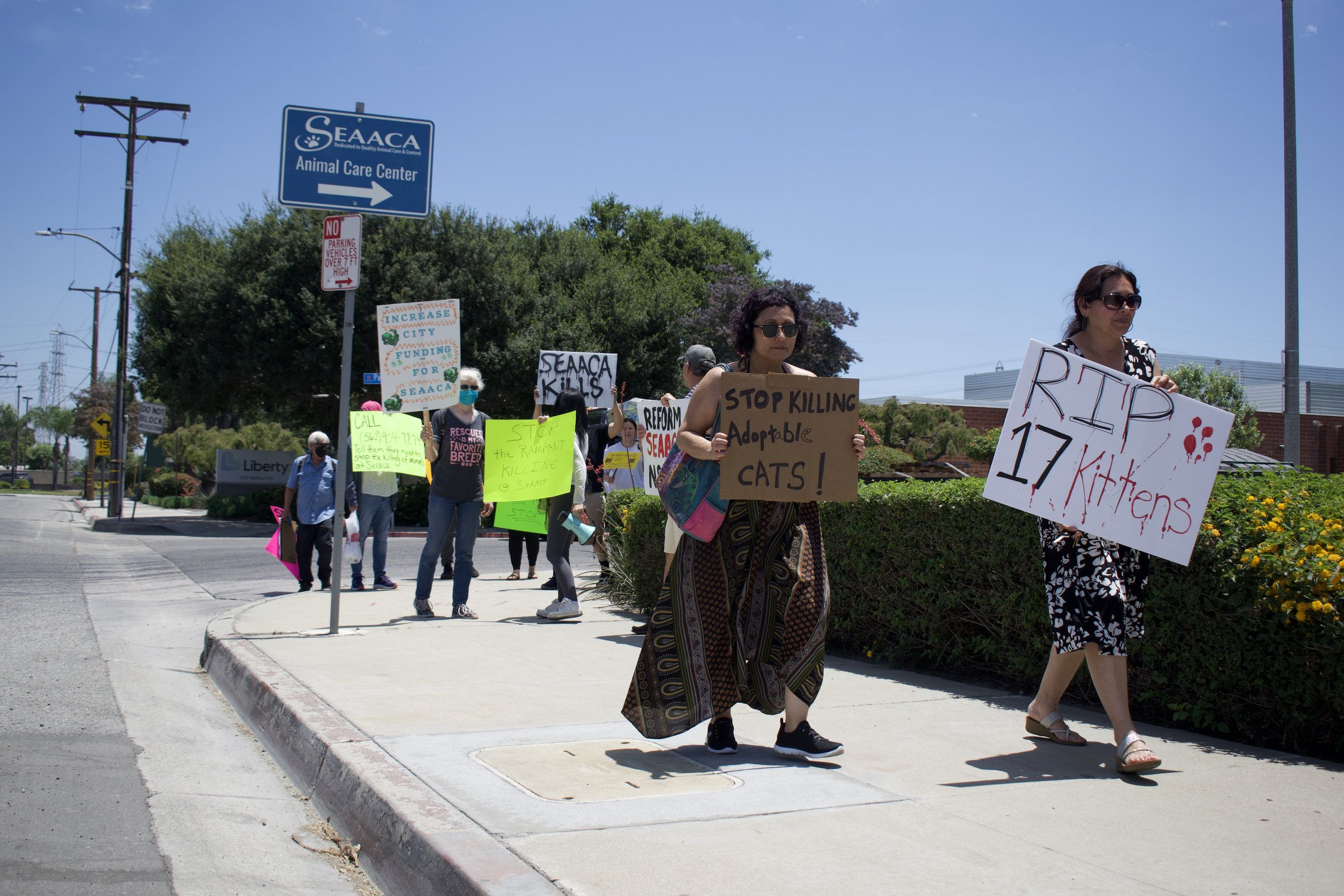Activists accuse SEAACA of inhumane animal treatment
Animal rights demonstrators protested SEAACA’s animal care procedures and accused them of inhumane animal treatment during their demonstration on June 24. (PHOTO BY VINCENT MEDINA)
DOWNEY — Animal rights activists, led by Lynette Whiteside-McCalnes, protested against the SEAACA in Downey last week after accusing the organization of inhumane animal treatment and demanding changes in their animal care procedures.
“They’ve put way more effort into finding a way to kill the animal than to actually vet them and adopt them,” Whiteside-McCalnes said. “I’ve taken animals from other shelters where I got a dossier of their medical history, and we’re lucky if we get a release sheet from [SEAACA].”
Foster groups and activists expressed their frustration with SEAACA’s animal care protocols during their demonstration on June 24. They accused the animal shelter of miscommunicating with animal rescuers, euthanasia procedures, inaccurate statistics and inaccessible operating hours.
In her petition, Whiteside-McCalnes elaborates that select animals are excluded from SEAACA animals saved statistics. She accused the shelter of touting a 99% live release rate while excluding animals based on owner surrenders, animal behavioral issues, sick animals and unweaned kittens.
Activists expressed concern that the facility is not suitable for a large number of animals, as the shelter covers 14 cities in Southern California.
Denise Woodside, the executive director at SEAACA, responded to the allegations and said misinformation has circulated through social media platforms, but the organization is committed to serving the community.
“SEAACA takes animal cruelty very seriously and regularly responds to animal cruelty calls within our service area,” Woodside said. “SEAACA abides by applicable federal and state mandates and any concerns of animal cruelty should be brought to the attention of SEAACA immediately so it can be investigated.”
Activists continued to advocate for better animal treatment.
An account they continue to refer to occurred on June 13, when 17 kittens were transported to SEAACA, but were euthanized soon after arriving.
Woodside explained the kittens were sick and not going to survive and were humanely euthanized.
Unweaned kitten euthanasia has decreased between 2013 with 4,356 kittens, and 2022 with 306 kittens, according to Woodside.

